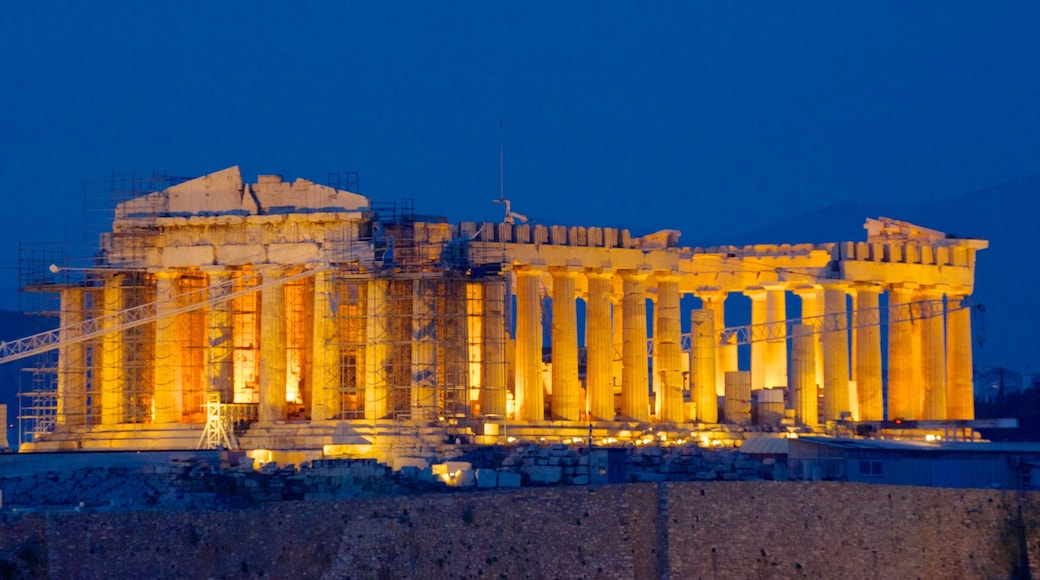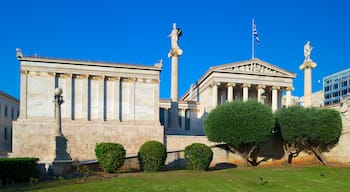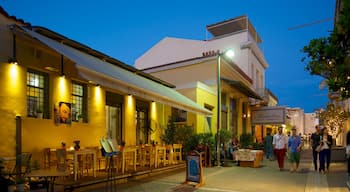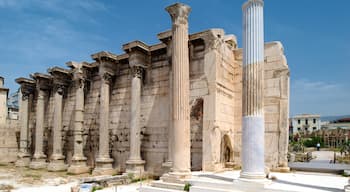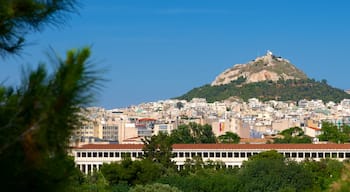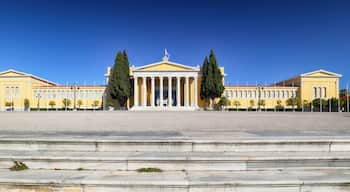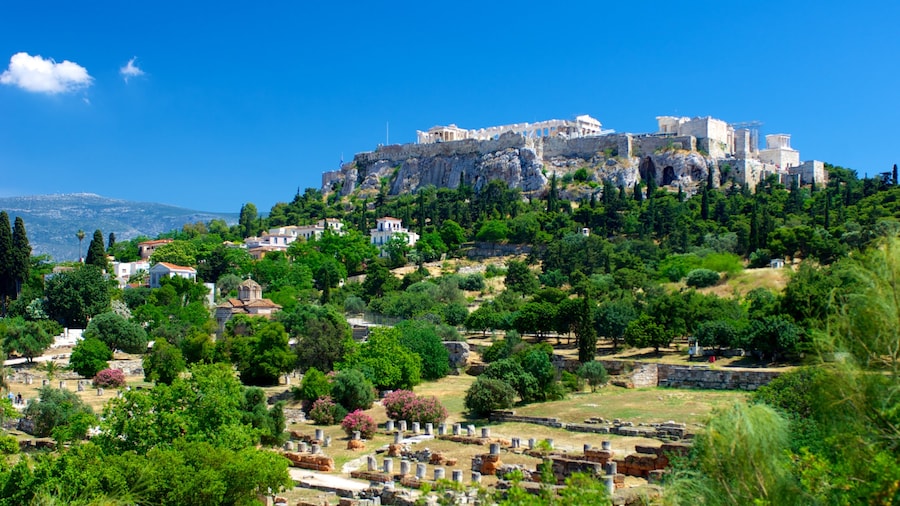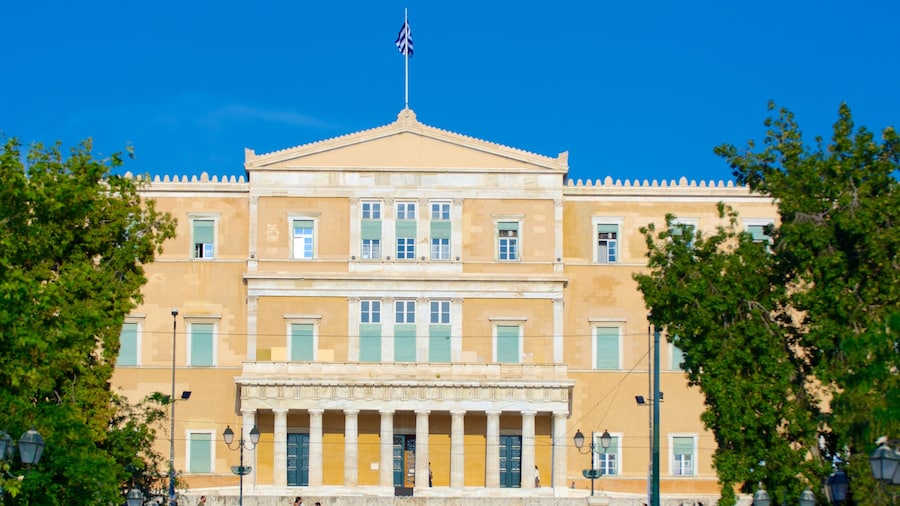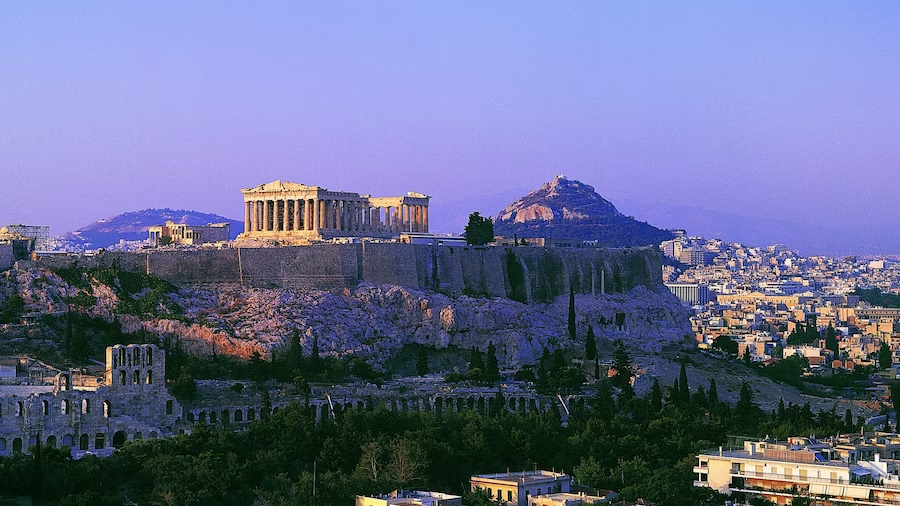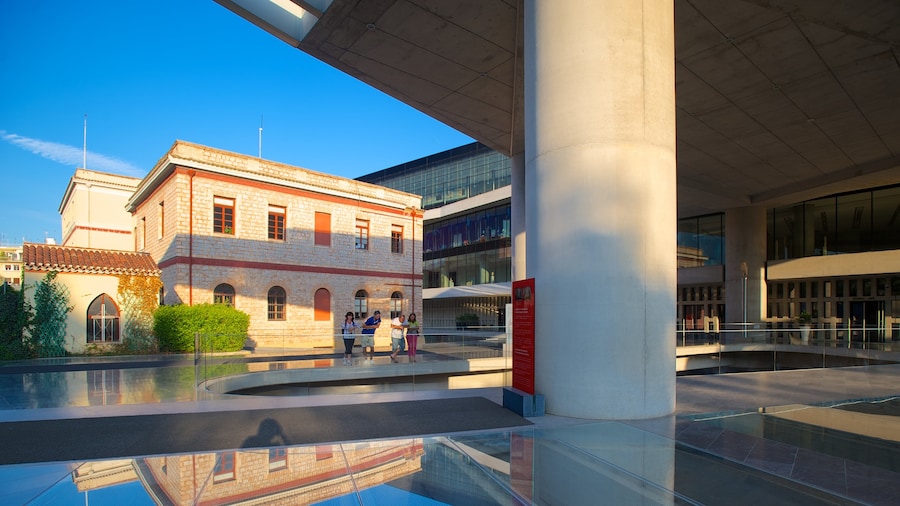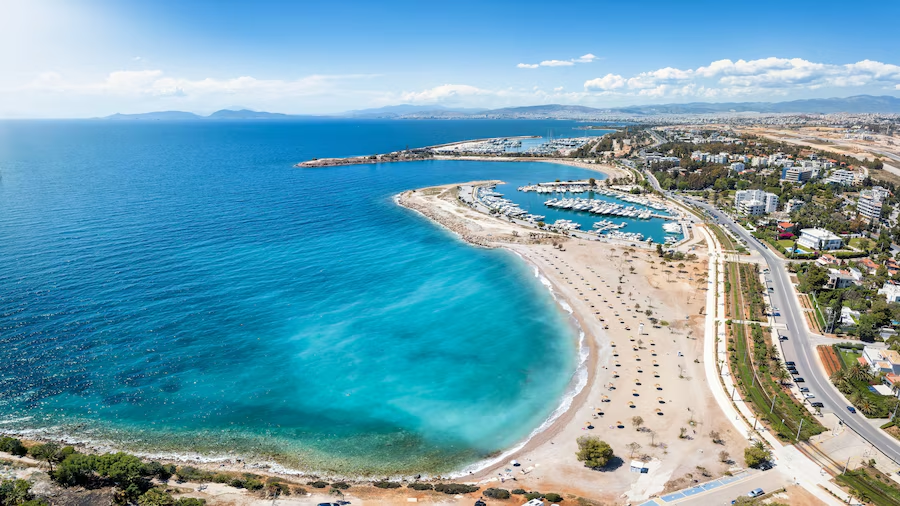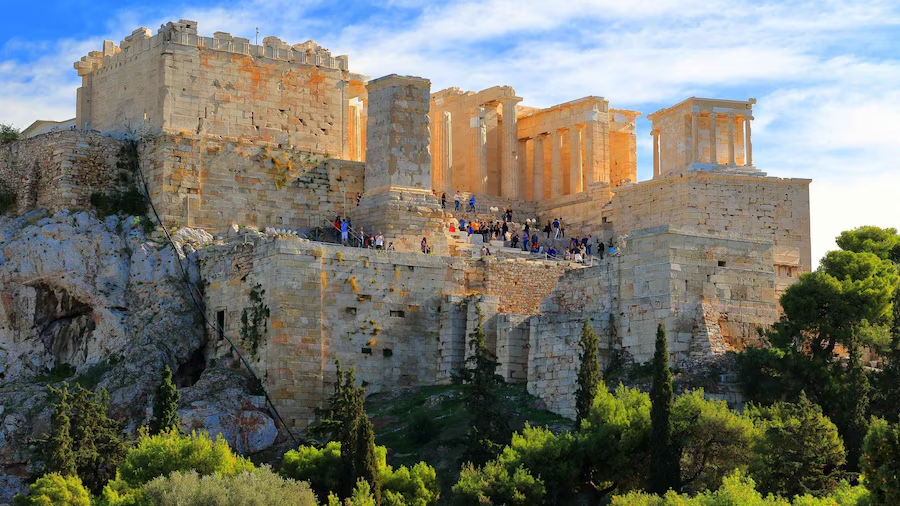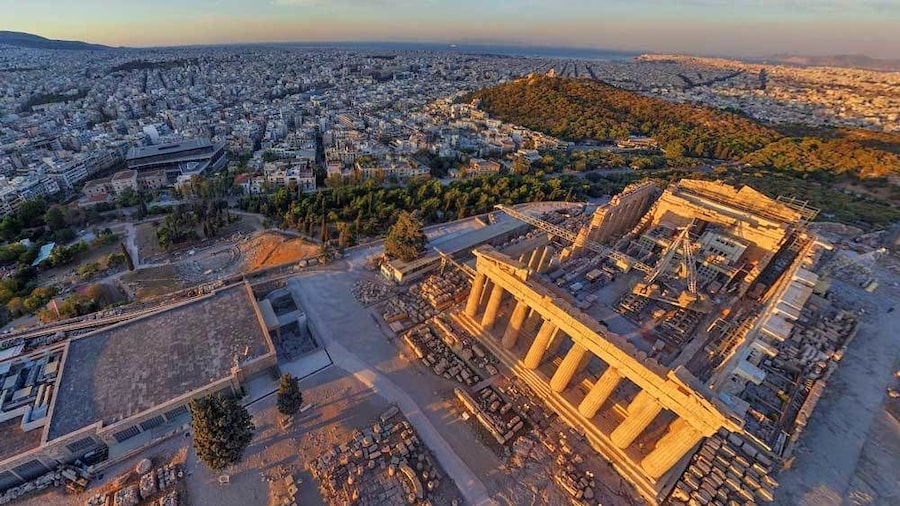The history of Athens is world-renowned. Ancient attractions such as the Acropolis, Parthenon, Agora and Dionysus Theatre, created during the Greek Golden Age, have influenced architecture throughout the Western world.
The Athenian Acropolis, one of the Seven Wonders of the World, is instantly recognisable. Sitting high above Athens on the Acropolis Rock, this 5th-century site and its majestic temples were created to pay tribute to the gods and demonstrate the supremacy of Ancient Greece. It continues to impress today, but make sure you visit early in the day to avoid the burn of the scorching summer sun.
Entering the Acropolis via the towering columns of the Poplyaia, you won’t fail to be impressed. On your way, you’ll see the unmissable Parthenon or ‘Temple of the Virgin,’ a famous national symbol, dominating the Athens skyline. This was once the most elaborate temple in Greece, framed by classic Doric style columns, with ornate friezes and sculptures. Inside, sat a precious statute of the city’s protector-goddess Athena made of ivory and gold.
Below the Parthenon sits the notable Dionysus Theatre. This grand mosaic-tiled, open-air theatre was the set of many Greek tragedies and plays and is one of the world’s first theatres. See the marbled seats of the elite and dignitaries, including Roman emperor Hadrian’s exclusive seat.
Another noteworthy site, the modern Acropolis Museum, houses many ancient sculptures and artefacts for even more insight into early Greek civilisation. The museum’s star attraction is the beautifully displayed Parthenon Marbles depicting scenes of ancient Athens. If you are lucky, you might even see live restorations and excavations at this impressive living museum.
If you love museums, Athens has all sorts. The National Archaeological Museum is one of the most prestigious in the world. Founded in the 19th-century, it contains the most comprehensive reference of Ancient Greek culture with more than 11,000 exhibits.
At the heart of civic life in Athens was the must-visit Roman Agora. Although difficult to imagine from its ruined remains, it contained the city’s busiest marketplace, libraries, courts and baths. It is purported as the birthplace of democracy, where public meetings took place and where Socrates once addressed his public. A guided tour of this popular site is recommended to fully appreciate its history.
Of course, there’s more to Athens than its monuments. The cosmopolitan capital has a real mix of traditional and modern. You can enjoy upmarket shopping, drinking and dining in luxurious surroundings, or traditional hospitality in Greek tavernas that have also stood the test of time. Athens is full of restaurants, and Greek cuisine is notoriously rich and moreish. Make sure you wind down after a day’s adventuring and enjoy some fresh fish, salty feta and juicy olives.
